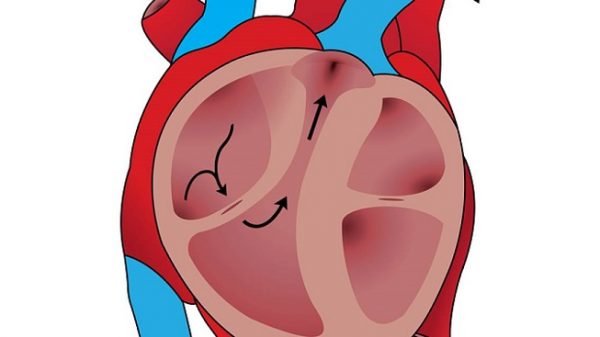Immune cells play surprising role in heart: Study

- Update Time : Thursday, March 5, 2020
- 218 Time View

New research in mice suggests that certain immune cells may help guide fetal development of the heart and play a role in how the adult heart beats, according to a news release posted this week on the website of Washington University School of Medicine in St. Louis.
The researchers analysed genetically modified mice that lacked B cells, and found that their hearts were smaller and contracted differently than the hearts of normal mice, the Xinhua news agency reported.
The hearts of mice missing B cells relaxed faster and pushed more blood out of the left ventricle with each beat. The researchers also found that in such mice, the number of T cells, a different type of immune cell, doubled in the heart.
“We are working on more studies to learn if the missing B cells have a direct effect on the structure and rhythm of the heart, or if we are seeing some indirect effect during development or through the change in T cells,” said the study’s first author Luigi Adamo, an instructor in medicine. “But that removing B cells had any effect on the heart is completely unexpected.”
B cells are a type of white blood cell well-known for their role as sentinels that circulate in the bloodstream and manufacture antibodies to fight off infection.
Focusing on B cells that appear to hang out in the heart, the researchers were surprised to find that these cells neither freely circulate through the body’s blood vessels nor reside permanently in the heart muscle. Rather, these particular B cells were found lingering in the small blood vessels that feed oxygen and nutrients to the heart muscle.
“Because they were in the blood vessels, it was conceivable that they were only a random sample of circulating B cells,” Adamo said. “But when we compared their active genes to those of freely circulating B cells, we found that there was something special about them: This is a type of circulating B cell that arrives in the heart vasculature and becomes sticky.”
These sticky B cells still circulate through the heart, the blood and spleen, but they slow down considerably, taking their time as they transit through the heart vasculature.
The findings have opened a door to possible immunotherapies to protect the heart and other organs that might also see this B cell behavior, according to the researchers.
The findings have been published in the journal JCI Insight.















